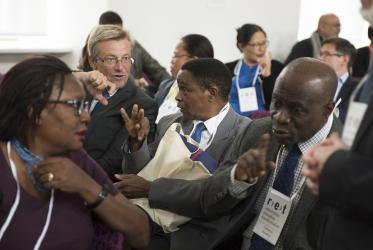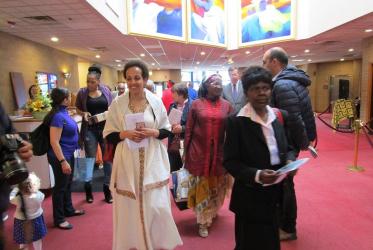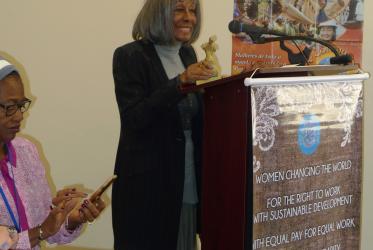Displaying 741 - 760 of 1073
Panel discussion fields ideas on European identity
26 April 2016
USA Racial Justice Accompaniment Visit
18 April 2016
Religious leaders as agents of peace in the Americas
02 March 2016
"I hit the ground running": Katalina Tahaafe-Williams
16 February 2016








